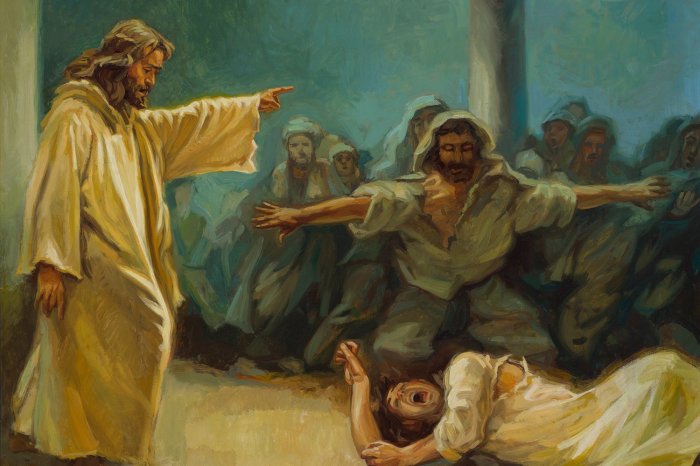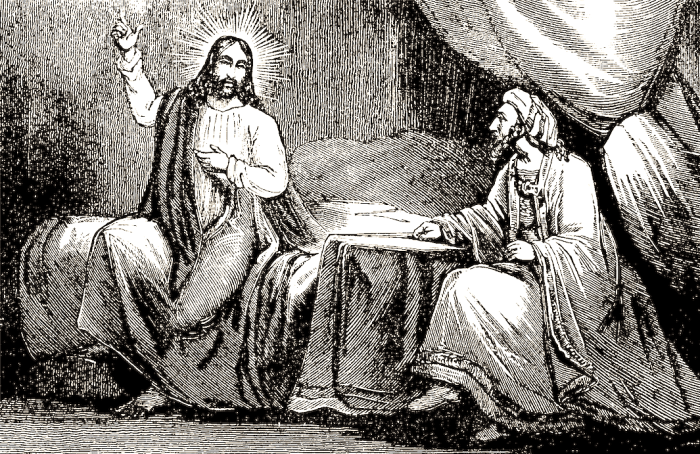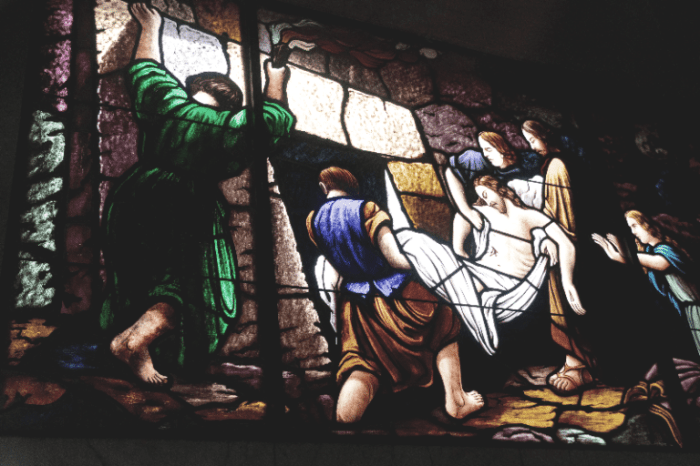Did Nicodemus try to cast out demons? This question has intrigued scholars and theologians for centuries, inviting us on an enigmatic journey through biblical narratives and theological interpretations. As we delve into the depths of this inquiry, we will navigate the intricacies of Nicodemus’s character, the complexities of demonology in the New Testament, and the profound implications for our understanding of faith and spiritual authority.
In the Gospel of John, Nicodemus emerges as a prominent figure, a Pharisee and a member of the Jewish ruling council, who seeks out Jesus under the cover of darkness, eager to engage in clandestine discussions about spiritual matters. Nicodemus’s enigmatic nature and his apparent openness to Jesus’ teachings have led to speculation about his involvement in practices such as exorcism.
Nicodemus and Demon Possession: Did Nicodemus Try To Cast Out Demons

The biblical account of Nicodemus’ encounter with Jesus in John 3 provides a glimpse into the beliefs and practices surrounding demon possession and exorcism during the first century. This article explores the biblical context of this event, the nature of demons in the New Testament, Nicodemus’ role in relation to demon possession, and the theological perspectives on his actions.
Biblical Context
Nicodemus was a Pharisee and a member of the Jewish ruling council. He came to Jesus at night, seeking to learn more about his teachings. During their conversation, Jesus emphasized the importance of being “born again” and receiving the Holy Spirit.
Nicodemus was perplexed by these statements, but Jesus explained that they were necessary for entering the kingdom of God.
Demons in the New Testament, Did nicodemus try to cast out demons
In the New Testament, demons are described as evil spirits that can possess individuals, causing physical and mental distress. Jesus frequently encountered people who were demon-possessed, and he had the authority to cast out these demons. The Gospels record several instances of Jesus performing exorcisms, such as the healing of the Gerasene demoniac (Mark 5:1-20) and the woman with the spirit of divination (Acts 16:16-18).
Nicodemus’ Role
The biblical text does not explicitly state whether Nicodemus attempted to cast out demons. However, there are several reasons why he might not have been involved in such activities.
- As a Pharisee, Nicodemus may have been hesitant to engage in practices that were not sanctioned by the Jewish authorities.
- Exorcism was often associated with magic and superstition, and Nicodemus may have been wary of being associated with such practices.
- Nicodemus’ primary focus was on studying the Torah and observing the Jewish law, rather than on performing miracles or casting out demons.
Theological Perspectives
There are different theological interpretations of Nicodemus’ role in relation to demon possession and exorcism.
- Some scholars argue that Nicodemus was a secret disciple of Jesus who later became involved in exorcism and healing.
- Others believe that Nicodemus remained a Pharisee and never embraced Jesus’ teachings on demon possession.
- A third view suggests that Nicodemus’ encounter with Jesus was a turning point in his life, leading him to reconsider his beliefs and practices.
FAQ Insights
What is the significance of Nicodemus’s nighttime visit to Jesus?
Nicodemus’s nighttime visit to Jesus suggests his desire for privacy and his willingness to engage with Jesus despite the potential social consequences.
What is the role of demons in the New Testament?
Demons are depicted as malevolent spiritual beings who can possess individuals, causing physical and psychological distress.
What are the different theological interpretations of Nicodemus’s role in relation to demon possession and exorcism?
Some interpretations suggest that Nicodemus may have been involved in exorcism, while others argue that his focus was primarily on spiritual matters rather than practical demonstrations of power.


